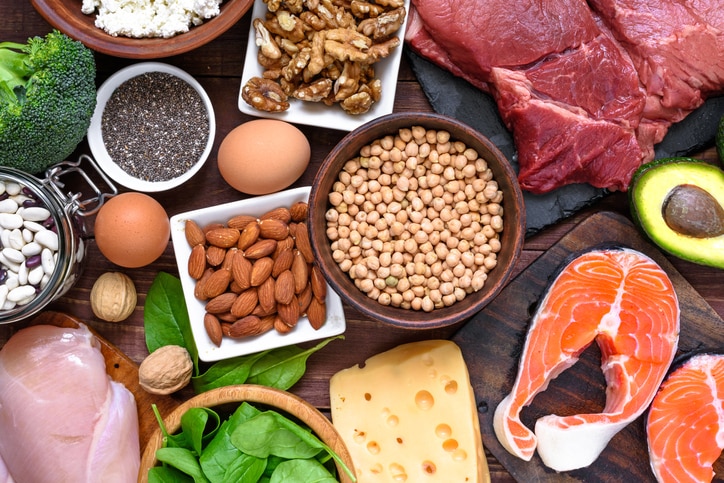What exactly is your metabolism? Basically, your metabolism is all the energy that you burn every day, measured in calorie. Some of us are often said to be blessed with fast metabolisms, but what can you do if you are not? There are easy ways that you can trick your body into burning calories more effectively. Read on and find out how to burn more calories with less effort by boosting your metabolism.
#1 Stand up more
Yes, you read this right. You can boost your metabolism without any exercise. Just break free from the chains of sitting at desk and start using a stand-up desk or just put your laptop on a high table. Standing while working can burn one-third more calories. It also helps fight off the drowsiness naturally occurred after eating due to metabolic drops after meals. Standing does not need to be done all day, just one to two-hour standing sessions can boost your metabolism.

#2 Start strength training
Resistance training can also help to give your slow- mo metabolism a boost. It is true that muscle is more metabolically active than fat, and therefore you will burn more calories each day, even on the days when you don’t make it to the gym. Try strength-training for a couple of times a week for building and retaining muscle for a higher metabolism.

#3 Do high-intensity workout
Science evidence suggests that high-intensity interval training (HIIT) can effectively increase your metabolic rate and help you burn fat. HIIT involves quick and intense bursts of activity that can burn more calories in half the time as steady-state cardio. Your metabolism stays up, which means your calorie burn may remain elevated post-sweat for up to 24 hours after exercise, known as the afterburn effect.

#4 Ramp up your protein & fibre intake
Eating a high-protein and fibre diet requires your body to burn more calories and increase your resting metabolism. Both protein and fibre burn more calories than fat and carbs, as extra energy is required to digest, absorb and process the nutrients in your meal. This is called the thermic effect of food (TEF). Aim to include a good source of protein and fibre at every meal and snack – think eggs, Greek yoghurt, nuts, lean meats and legumes.









